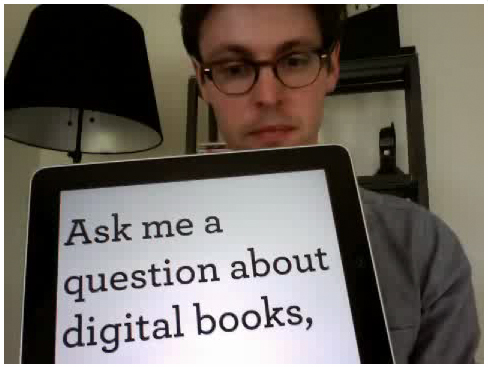Alice in Wonderland: A Digital Dazzler
Delightful dinner at the Essex Inn last night with writer friends ruminating on the future of publishing, book bundling, book/app convergence and other exciting changes in the realm of reading, writing, listening, watching and storytelling. An apt prologue to Chris Stevens’ lament this morning.
“I’m desperate for the book industry to produce some work that blows me away, but for now there’s a few Alice clones and not much else. I can see exactly why this is happening. The major publishers have completely abdicated responsibility for producing the digital versions of their catalogues: it’s all handed over to amateurs. You see it throughout the industry. From the typographical horror of most eBooks, through to the lacklustre iPad titles being produced.” ~ Chris Stevens (via eBookNewser)
A public domain book, (read free from copyright, royalties, etc.) Alice in Wonderland was revitalized by Stevens and a friend after they lost their jobs and had time on their hands. As a writer (The Times, CNET) and graphic designer Stevens was an obvious creator this this app which has already been installed on half a million iPads, but why didn’t the publishing industry beat him to the punch?
“The big problem is that most publishers don’t care about the iPad or eBooks very much, whether this is an aesthetic rejection based on the publisher’s historical reverence for the printed page, or a reflection of the relatively small profits to be made on the iPad so far, it’s hard to know.” ~ Chris Stevens (via Toronto Review of Books)
I suspect that traditional publishing wouldn’t sneer at 5,000,000 installs of a public domain property retailing at $8.99! And just in case you assume it’s all luck (Stevens admits that much of their success is luck), take a look at these reviews from iTunes’ Alice in Wonderland download page.
“The cleverest iPad book yet … For the first time in my life I am blown away by an interactive book design.” ~ Gizmodo.com
“Alice app for iPad points the way toward a new generation of pop-up books.” ~ Independent.com
“Alice in wonderland iPad app reinvents reading.” ~ TheHuffingtonPost.com
“A glimpse of the future of digital reading.” ~ BBC.co.uk
What are you creating?
Update: Friend and perenial inspiration Linda Hollier (@lindahollier) invites us on a plunge down the rabbit hole a century and a half after Lewis Carrol initiated Alice’s Adventures in Wonderland.
Alice found herself in a room with a little table. On it lay a tablet. To examine it she picked it up, swiped its screen and squealed with delight at what she found. There were stories with pictures that were interactive when she touched them. There were conversations going on in real time! There were maps and dictionaries, newspapers and magazines. She could play games and even draw using her finger.
She noticed a camera and a special app and before long was taking pictures of herself which transformed her at once into someone tall, someone short, someone with a huge funny face and then someone all squashed up. She squealed with delight. (here2here)
Linda’s playful exercise transports us ultimately into an example of the wonders available to us in this brave new world, wonders more abundant and accessible than ever before if we only stop (or even slow down) long enough to see and appreciate them.
Related articles
- The same old Wonderland? (engl329b.wordpress.com)
- A Sneak Peek at Alice in Wonderland Makeup (bellasugar.com)
- iPad App Lets Children Create & Publish Their Own Hard-Cover Books (psfk.com)






